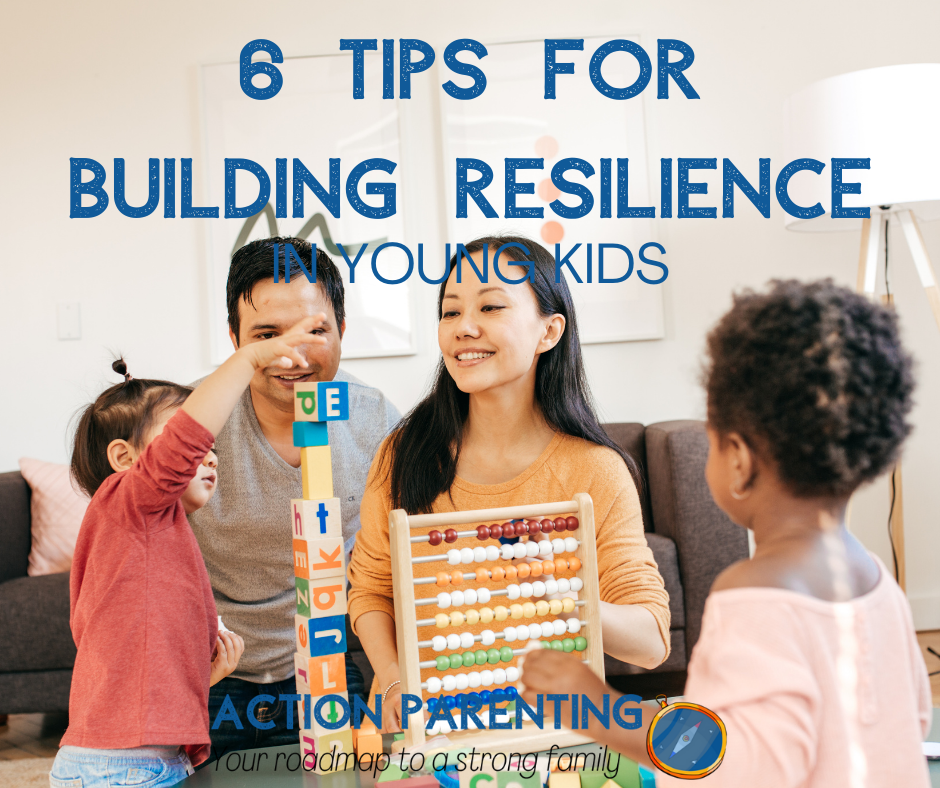Resilience is our ability to bounce back when we encounter hard or challenging situations. As much as we would like to protect our children from anything bad happening to them, the reality is, that is impossible. Our ability to bounce back is both influenced by our biology as well as our experiences. During the foundational early years of life, there are lots of simple things that we can do to help grow our children’s ability to bounce back from the hard and challenging situations they will encounter today and in the years to come. Here are six tips for building resilience in young children.
Tip #1 – Relationship is Primary
Stable and secure relationships are a basic need of all humans. We are not meant to do life alone and this is especially true in young children. Babies are completely dependent on their caregivers to meet all of their needs. As children grow, they start to go off and explore the world around them but need a safe, secure person to come back to. Watch your preschooler and you will notice how they will go off and explore but circle back to check-in with you. Knowing that you are there gives them the confidence to go out into the world.

Tip #2 – Be Present not Perfect
Raising and caring for a human is one of the most challenging things most of us will do. I don’t know about you, but there are many times I feel incompetent and know that I didn’t make the best decision or react in the optimal way to my child. However, parenting is not about perfection. In fact, continuing to show-up for our kids, even when things aren’t going well or going back and repairing our relationship when we have overreacted helps to build resilience. When we do this, we are helping our kids learn that showing up is more important than always getting it right.
Tip # 3 – Rhythms and Routines
At Action Parenting, we talk a lot about being intentional with developing healthy rhythms for your family. Rhythms and routines provide structure and stability and they also help our children build their executive functioning skills. Executive functioning is a set of mental skills that include working memory, flexible thinking, and self-control. Developing strong memory, flexible thinking, and self-control skills help us manage our feelings and responses when we encounter hard or stressful situations.
Tip # 4 – It’s Okay to Ask for Help
Independence is often seen as a sign of strength and in many situations it is. We want our kids to learn how to dress themselves, clean-up their rooms, and go to school on their own! However, we also want to know how to ask for help when they encounter something they don’t know. Life is full of new experiences and learning how to ask for what we need to move through the new experience is important.
Tip # 5 – Build the “I can do hard things” Muscle
Keeping with the theme of asking for help, building the “I can do hard things” muscle helps build resilience too. With preschool age children, you can do this by highlighting characters in books or shows that do hard things, recognizing their efforts to try hard things, and maybe even make-up a song or frequently repeat the phrase “I can do hard things!” Make it fun to tackle the hard stuff!
Tip # 6 – Practice Reframing
It’s easy to see what’s going wrong or what is not working. Help your preschooler learn to see both the hard and the positive in a situation. You might say “It’s really hard when we don’t get to play with the toy we want and we can be patient and wait our turn.” By doing this, you are helping build internal dialogue that will help them navigate all of the challenges life brings.
Want more tools for building resilience in your family? Our FREE online course, “Parenting in a Pandemic: Secrets for Survival” has practical tips for not just surviving but thriving in times of adversity.

